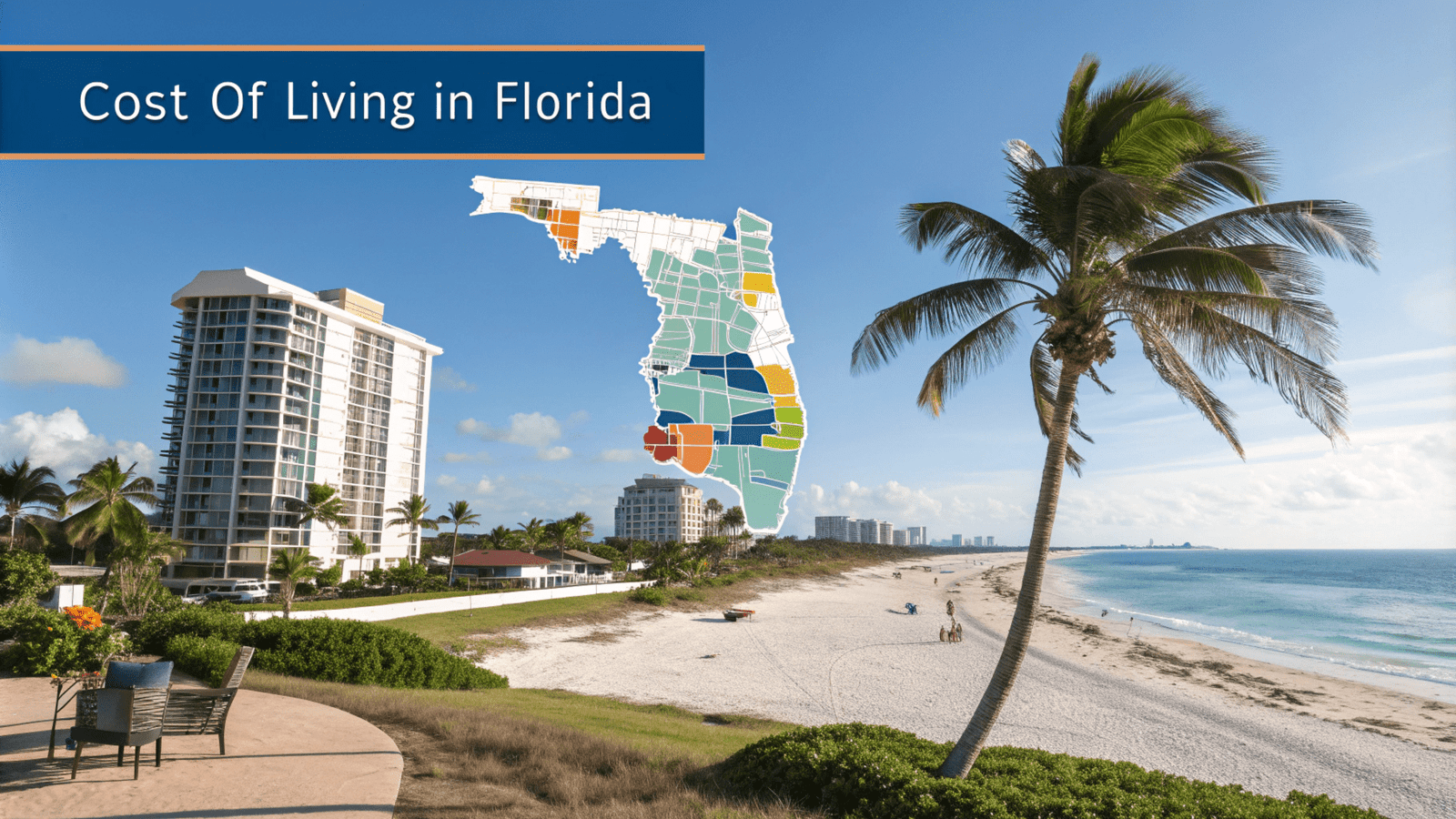Florida attracts newcomers with its sunshine, beaches, and lifestyle—but understanding how the cost of living varies across its regions is crucial before making a move. In this comprehensive guide, you’ll learn which areas in Florida are most and least expensive and how they compare in housing, utilities, groceries, and transportation.
Table of Contents
ToggleQuick Summary
- Most Expensive Region: South Florida (120–130% of the national average)
- Most Affordable Region: North Florida (85–95%)
- Balanced Cost & Opportunities: Central Florida (95–105%)
How Florida’s Cost of Living Varies by Region
Florida’s cost of living can be categorized into three major regions:
South Florida (Miami, Fort Lauderdale, Palm Beach)
- Cost of Living Index: 120–130%
- Best For: High-income professionals, international buyers
- Highlights: Luxury real estate, international culture, beachfront lifestyle
- Drawbacks: Skyrocketing housing prices and rental competition
Central Florida (Orlando, Tampa, St. Petersburg)
- Cost of Living Index: 95–105%
- Best For: Families, tech professionals, retirees
- Highlights: Entertainment hubs, job growth, suburban affordability
- Drawbacks: Tourist congestion and rising insurance costs
North Florida (Jacksonville, Pensacola)
- Cost of Living Index: 85–95%
- Best For: Budget-conscious individuals, first-time homebuyers, military families
- Highlights: Southern charm, affordable housing, relaxed pace
- Drawbacks: Fewer upscale amenities and urban perks
Housing Costs by Region
Region | Median Home Price | Average Rent (2BR) |
South Florida | $500,000+ | $2,400/month |
Central Florida | $350,000 | $1,800/month |
North Florida | $280,000 | $1,200/month |
Investment Tip: Consider up-and-coming areas like Port St. Lucie and Lakeland for lower costs and growth potential.
Monthly Utilities Snapshot
- Electricity: $150–250 (Summer), $90–150 (Winter)
- Water/Sewer: $45–85
- Savings Tip: Use smart thermostats and LED lighting to cut energy costs by up to 15%.
Transportation Costs
City | Transit Pass | Avg. Auto Insurance | Gas Price | Parking |
Miami | $112.50 | $2,800/year | $3.80 | $300/mo |
Orlando | $50 | $2,200/year | $3.60 | $150/mo |
Jacksonville | $65 | $1,900/year | $3.50 | $50/mo |
Smart Move: Compare insurance providers yearly and use toll transponders to save on travel.
Grocery Budgets
Household Type | Monthly Budget |
Single Adult | $400–500 |
Couple | $700–800 |
Family of Four | $1,000–1,200 |
Tips to Save:
- Shop Publix BOGO deals
- Buy produce at local farmer’s markets
- Join wholesale clubs like Costco
Regional Price Comparisons
- Miami Area: +30% above state average — High luxury demand, limited land
- Orlando Area: +5% — Tourism-driven pricing and tech expansion
- Jacksonville Area: -5% — Affordable housing and expanding job market
Everyday Savings Strategies
- Use loyalty programs for groceries and dining
- Attend free local events for entertainment
- Download deal apps for attractions and services
Conclusion
Whether you’re drawn to South Florida’s luxury, Central Florida’s family vibe, or North Florida’s affordability, there’s a place for everyone. Use this guide to evaluate your options and align your location choice with your lifestyle and financial goals.
